
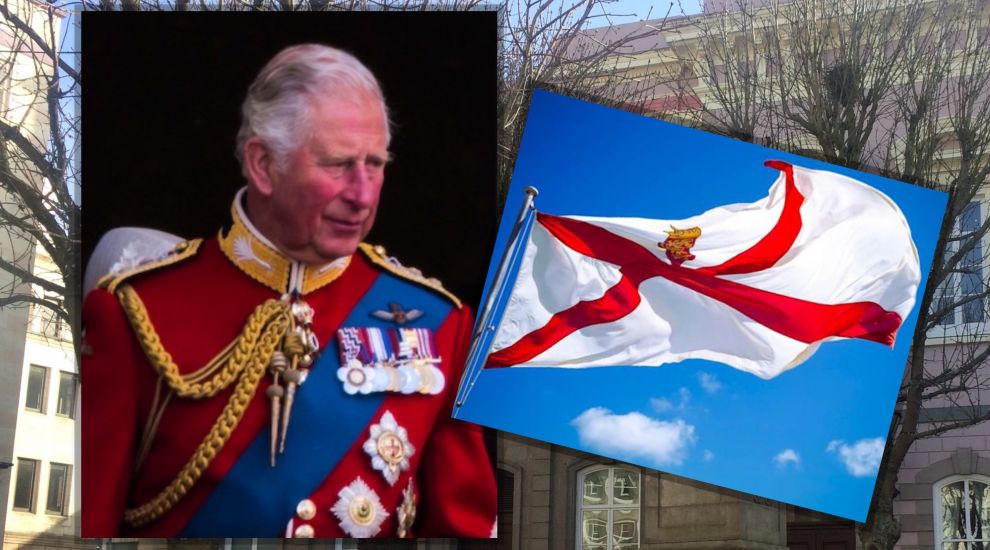

According to one islander, a grave misconception pervades our understanding of the title 'The Duke of Normandy' - and it may even be offensive to use it.
In the Channel Islands, the British Monarch is often fondly referred to as the 'Duke of Normandy.' It was tradition, for instance, when toasting the late Queen to refer to her, in a way of affection, as 'La Reine, notre duc' - 'The Queen, Our Duke.'
According to one islander, however, this tradition, intended to be a show of affection towards the monarch, is actually a deep insult.
John Mills CBE, a local medieval history enthusiast, has argued to Bailiwick Express that this tradition does not only express malign sentiments to the sovereign, but rests on a completely false account of history.
The tradition stems from the following generally held view of history: by 1066, Jersey was a part of the Duchy of Normandy, which at that time ruled over by William the Conqueror who, of course, also ruled over his newly won territory of England. Then, in 1106, William's youngest son Henry I seized the Duchy of Normandy from his brother Robert.
Since then, the English and subsequently British sovereign has held the title 'The Duke of Normandy'.
In 1204, King John lost the territory of Normandy to the French. Jersey, however, remained loyal to the English Crown. As such, islanders still refer to the sovereign as the 'Duke of Normandy', despite the fact that they do not actually rule over Normandy at all.
John Mills, however, sees this as an utterly false perception of historical events.
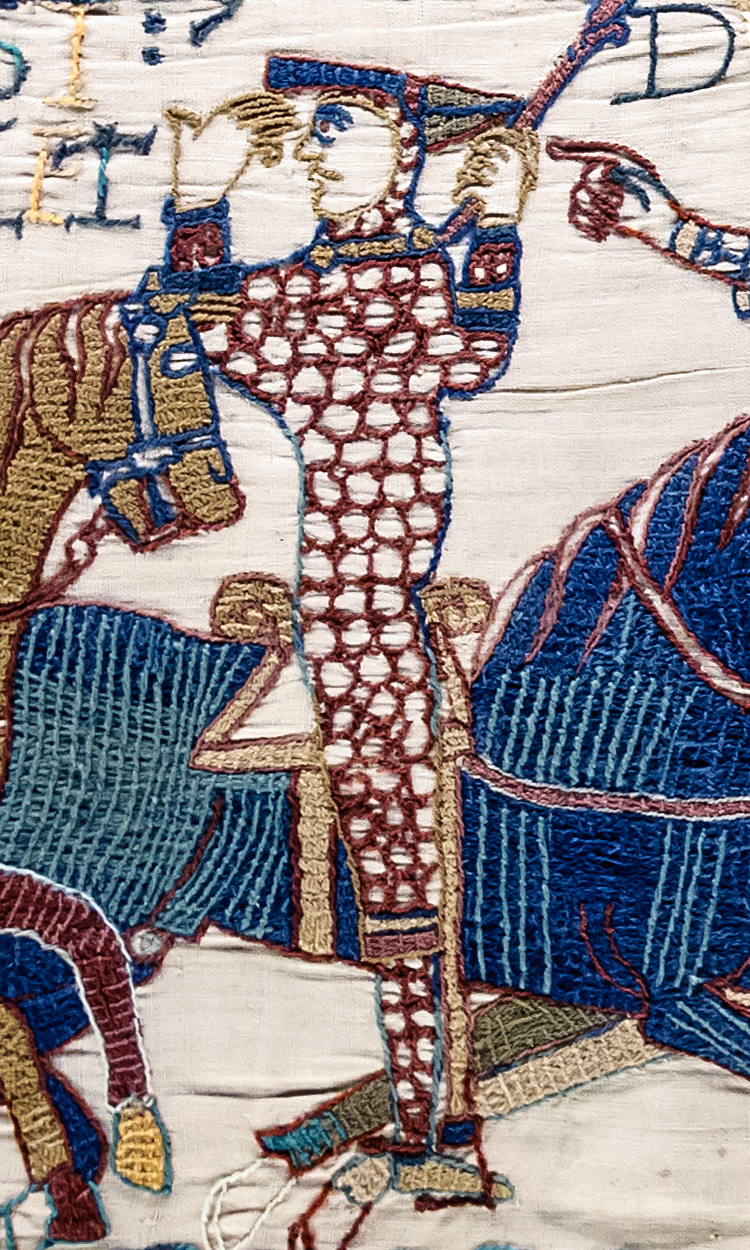
Pictured: William The Conquerer, Duke of Normandy and King of England, as depicted on the Bayeux Tapestry.
In response to a Bailiwick Express article exploring why some islanders affectionately called the Queen 'Notre Duc' and that they may now also use it for King Charles III, Mr Mills explained why he felt this to be wrong...
The English kings indeed had that title, among others, for almost 200 years after 1066 but it was surrendered under the terms of the Treaty of Paris in 1259. The then English king, Henry III, renounced for ever all his claims to Normandy and certain other territories now contained within eastern France. This was a peace treaty which brought to an end some half century of skirmish and warfare between England and France, and its terms were quite largely imposed upon Henry by a French king in the ascendant. For Louis IX of France, the renunciation of the Norman claim and title was of high strategic importance as he consolidated his whole territory.
As a public symbol of the renunciation, in 1260 the Great Seal of the Realm was solemnly broken in King Henry's presence at Westminster and a new one given to him. The old one included the 'Duke of Normandy' title but, of course, the new one didn't. The title has been wholly extinct since then and nowadays Normandy is but a departement of France.
Given the general sense we all have of Jersey's loyalty to the Crown, we really ought not to use the title of 'Duke', even if in a light-hearted manner or, say, in a toast, when the title not only does not exist but also was formally surrendered over three-quarters of a millenium ago. Jersey has come to value deeply its link with the British Crown and usually seems to say hurrah for the good fortune of the break with Normandy in 1204, a happenstance though it was; and I for one would say that that often expressed loyalty ought not to be sullied by reference to an extinct foreign title. That's not how kings should be addressed or referenced. The Irish never called the late Queen 'Lord of Ireland', which was another of Henry III's titles, unaffected by the 1259 Treaty until its extinction a mere two hundred or so years ago.
Sadly perhaps, but nonetheless maybe not without value as I look back, my special subject at the university, many years ago, was the English revolution of the 1250s and 60s; and I remember enough to have felt able to pen a short note about the Treaty of Paris and the surrender of the claim to Normandy for ever, which your readers may care to peruse. It is, though, very much a short summation of some complex events - a taster, really, of some fascinating and difficult things which were at the top of the political agenda at the time.
It was all quite a long time ago, but the keenly fought events of those years did settle some main aspects of the territories of both England and France that still obtain, with familiarity, today. In that sense especially, this particular story is, I hope, one not only of some intrinsic interest but also not of irrelevance to understanding of the constitutional arrangements of our small country.

Pictured: The Proclamation of Charles III as King in Jersey's Royal Square. (Max Le Feuvre)
So, while many islanders think that the use of the title 'Duke' is one of affection, Mr Mills believes that it should be regarded as quite the opposite.
The title has not existed for since the middle of the 13th century, and falsely attributing it to our Monarch is actually an expression of disloyalty.
For those readers who want more information on the Treaty of Paris, which saw the title of 'Duke of Normandy' stripped from the English monarch, Mr Mills has also provided a helpful breakdown...
1." The Treaty of Paris between England, France and Germany was perhaps the most significant European treaty of the medieval period,. It sought to settle conflict between the two main continental powers, England and France, that had rolled on for more than half a century, a conflict centred in considerable part on control of what is now eastern France, which had been in the hands of the English crown, variously, for a century or more.
2. The treaty was made on 11 May 1258 but sealed at Westminster only in October 1259, by the two English archbishops in the presence of the Papal Legate. It was published on 4 December 1259.
3. The terms of the Treaty reflected not only French military and political strength, which, during the first half of the thirteenth century, had, little by little, enabled steady expansion of French influence and control westwards from the Ile de France, but also relative English weakness as Henry III of England sought to retain his continental territories in the face not only of that expansion but also fairly continuous political and financial difficulties at home. The main terms of the Treaty were in effect imposed upon the English by the French, including extinction of all English claims to Normandy, for ever. This had been on the cards for many years – the actual territory of Normandy having been lost in 1204 by King John – but Henry III remained reluctant to the end to make that concession until, by around 1257, he had, for a range of reasons, no other realistic option but to make a full peace with France. The Treaty equally bound his heirs and successors in perpetuity not to lay claim to the surrendered lands in France, including Normandy.
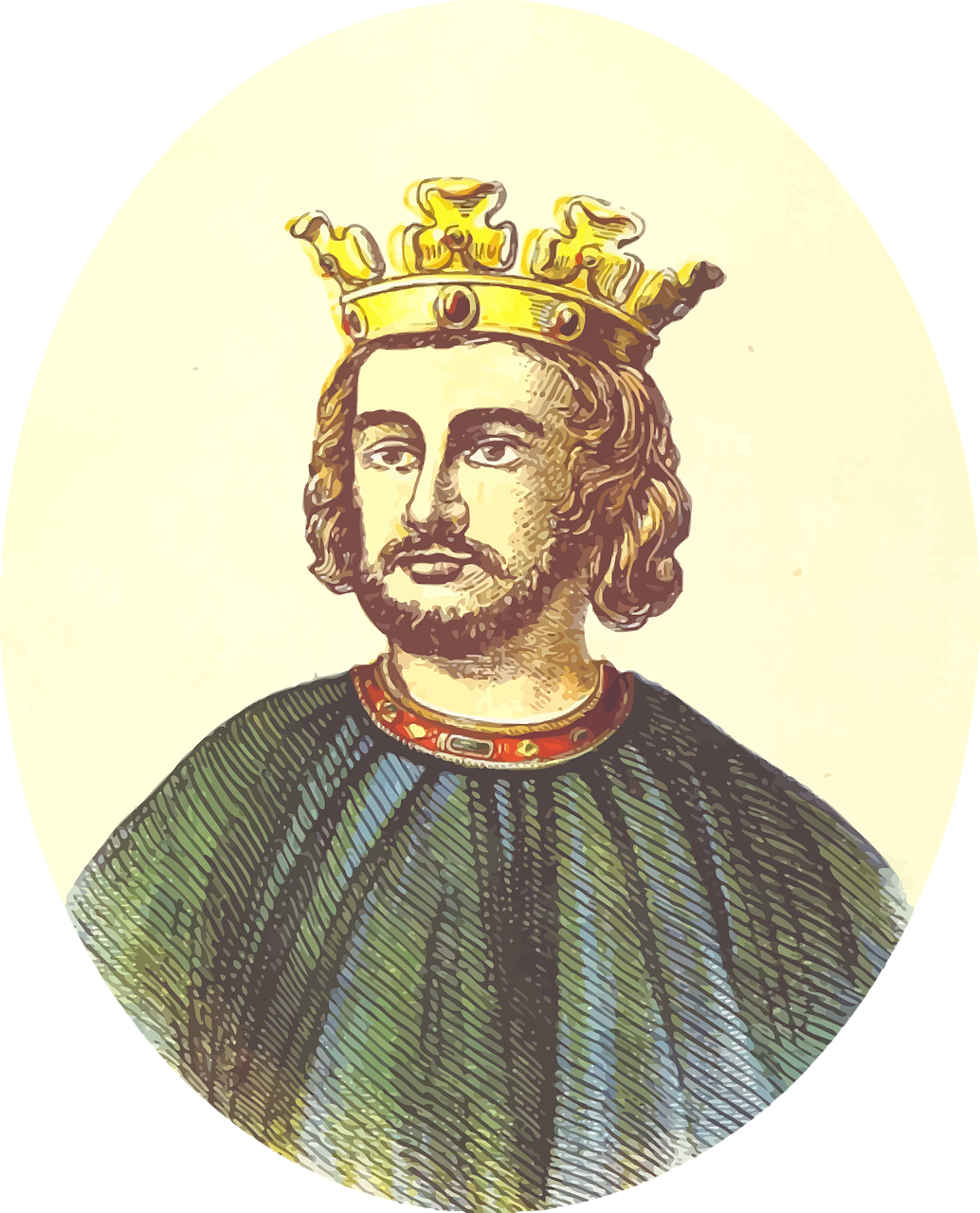
Pictured: A depiction of King John, the King who lost Normandy.
4.The Treaty can be seen as having settled the expansion of the domain of the crown of France, sketching the lines of what is now modern France from Nantes to Marseilles. It confirmed, however, continued English possession of the Duchy of Acquitaine (also known as Gascony - modern south-west France including Bordeaux) although this duchy was to held under the suzerainty of the French crown and not as sovereign territory. Such a deal on Acquitaine by Louis IX of France was in return for Henry’s formal surrender of claims to other lands within the French continental territory, including especially Normandy. But it was a deal which further reflected French strength and there was constant manoeuvring in subsequent decades to seek to undo the residual French hold over Acquitaine and restore, or impose, English sovereignty. This became a principal driver of the Hundred Years War (which ended with the loss of Acquitaine in the 1450s).
5. Although Normandy had been ‘lost’ by King John half a century before, in 1204, save for the Channel Islands, it had continued to be claimed by the English Crown, by right from William the Conqueror’s having combined the duchy with the English Crown in the eleventh century. As with his seven predecessors since 1066, Henry III formal titles for the first forty years of his reign included that of ‘Duke of Normandy’.
6. For many years Henry III’s policy had been to seek recovery of his continental empire. Recovery of Normandy was a key element of this aim. But, by the 1250s, both domestic and international politics warranted change and peace with France had become essential. One main reason for this lay in Henry’s wider plans on the European stage, particularly to wage war in Sicily, with papal support, in order to put his son on the throne there. French support for that was a requisite. Another reason was hostility in England to ‘foreigners’ exercising too much influence at court and being rewarded with far too much English patronage. Other pressures in England were also crowding in, made worse by a poor harvest in 1257 which put corn prices up sharply in 1258. Chroniclers report and suggest a general sense of a kingdom in disarray, or out of joint. The resources which would be needed to recover the continental lands were simply not there and parliamentary assemblies, one after the other, would not provide them. All this led, in 1258, to a programme of reform being forced upon the King by a confederation of leading barons. The conclusion of the Treaty of Paris at that moment, on French terms, has to be seen in the context of a full-blown political crisis in England.
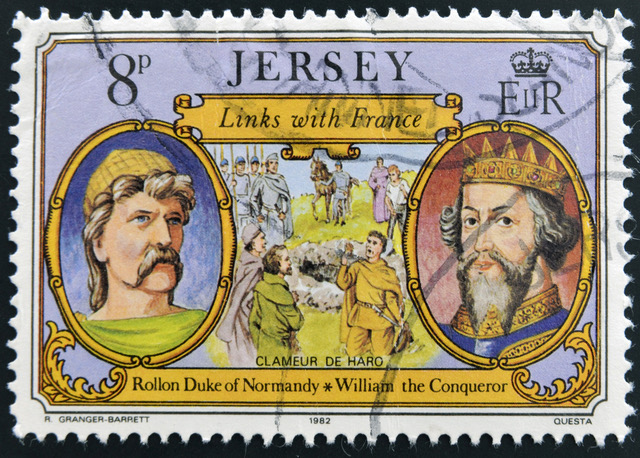
Pictured: A Jersey stamp from 1982 depicting the island's links with Normandy. The stamp depicts both Rollo, the first Duke of Normandy, and William the Conqueror.
7. We learn from one good source that as late as January 1258. Henry was still demanding the return of Normandy, and the other lost lands. This was given short shrift by Louis IX; the message brought back from Paris by his envoys in spring 1258 was that if he wanted peace Henry must resign all his claims. At the same time, Louis pressed his point that Acquitaine would in future be held as a fiefdom of France. Henry would, however, be entitled to continue to be styled Duke of Acquitaine, albeit as a French peer and not a sovereign lord. These were unpalatable requirements, softened only by certain matters of detail over rights to land at the margins of the contested territories, which were negotiated at length. The terms were not at all welcome to several of Henry’s leading barons, including the Lord Edward, his heir, who had been born and bred in Gascony and who ruled Acquitaine as his main power base.
8. Edward’s position was part of a broader struggle between son and father over many years, and which was at the heart of the baronial wars in England from 1258-65. But, on balance, the leading English barons accepted the Treaty terms as the price of peace, making their own calculations as to the balance of personal advantage, and in 1258 Edward’s faction in England was not strong enough to oppose the decision by force of arms. The terms were also acceptable to Henry’s brother, Richard, Duke of Cornwall, who was also King of the Romans and would have had his main eye on the plans for conquest in Sicily. So, in May 1258, the Treaty was signed by Henry’s envoys in Paris on the terms set by Louis IX. This, of course, included the renunciation of all claims to Normandy and its dukedom.
9. Political events in England took a difficult turn later in 1258. It was a year of revolution in England, and Henry III was in fact deposed for a time that year by disaffected barons, and imprisoned in the Tower. So it is hardly surprising that sealing and publication of the treaty was delayed until Henry had regained some authority and the Lord Edward’s position had further weakened.
10. Unsurprisingly, there was, we are told, mixed opinion about the Treaty among the baronage in Normandy itself, a cohort which probably had its share of hard-headed views about the advantages of life under a largely absent English king compared with the relative closeness of direct rule from Paris by a monarch who was powerful and very much in the ascendant. But these forces did not, and could not, turn the clock back. As in 1204, men made choices according to personal situation and preference, just as it had mainly been the decision of one Norman baron, a supporter of King John, that had led to Jersey’s remaining under English control after 1204; he had large landholdings in the Island, held of King John, which were no doubt highly profitable and not for giving up.
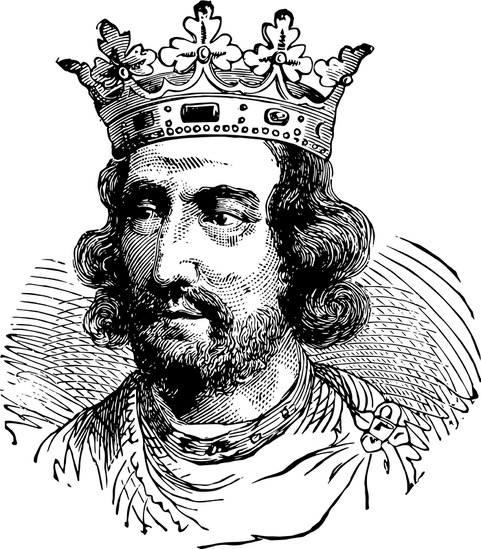
Pictured: Henry III, the English King who finally renounced the title 'Duke of Normandy'.
11. If, however, there were imperatives that gave Henry III no real room for further resistance to the French terms, Louis IX was also driven by two strategic objectives: definite renunciation by England of claims to Normandy, Anjou, Maine and Poitou; and ensuring that Henry III’s hold over Acquitaine was as a peer of France and nit by sovereign right.
12. As for the Dukedom of Normandy, under the Treaty Henry III had renounced that title – and, also, the countship of Anjou. So, by law, he could no longer style himself, as he had hitherto, as “king of England, lord of Ireland, duke of Normandy and Aquitaine and count of Anjou”. The Great Seal of the realm had until then borne those titles, with an image of the king on a throne, grasping a sword. And the Great Seal was the overt public expression of the power and lordship of the King, which legitimised all acts done by him or in his name.
13. In line with the terms of the Treaty, a new Great Seal was made, with the new legend: “Henry, by the grace of God king of England, lord of Ireland and duke of Aquitaine”. On the new seal, the representation was now of the king seated upon a chair, not a throne, holding a sceptre not a sword. This represented the formal end of the Angevin Empire, the Anglo-French territories under the control of the English Kings for well over a century, starting with Normandy in 1066. Henceforth, Henry III and his successors would retain only their south-western French lands, but held as fiefs of the French crown in liege homage, a form of tenure which normally implied feudal service. This was a geo-political change in Western Europe of high import, and soon led to continuing skirmishing and warfare between England and France which was not really resolved for three hundred years, until, in 1558, the last English continental possession, Calais, was lost.
14. On 18 October 1260, in a short ceremony at Westminster, the new Great Seal was formally handed to Henry III, and the old one broken into fragments by the king’s command. He gave its silver matrix to one of his clerks, to be donated to a religious house to provide alms for the poor. This formal act of giving effect to the renunciation of the claim to continental Normandy was recorded in an official minute still to be found on the Close Roll for 1260, in the National Archives. Breaking the great seal in this way was an unusual act and a highly public symbol of the irreversible change regarding the claims to Normandy and other lands in France brought about by the Treaty of Paris. The renunciation of the Crown’s claim to Normandy was complete, however much Edward I, years later when his power was at its height, carried on trying hard to undo it.
15. Thus in 1259 the dukedom of Normandy became extinct, freely renounced by formal, legal, treaty. No King or Queen of England since 1260 has been titled ‘Duke of Normandy’ or entitled so to style herself or himself, and none of them ever has. King Charles III is not Duke of Normandy. No-one is.
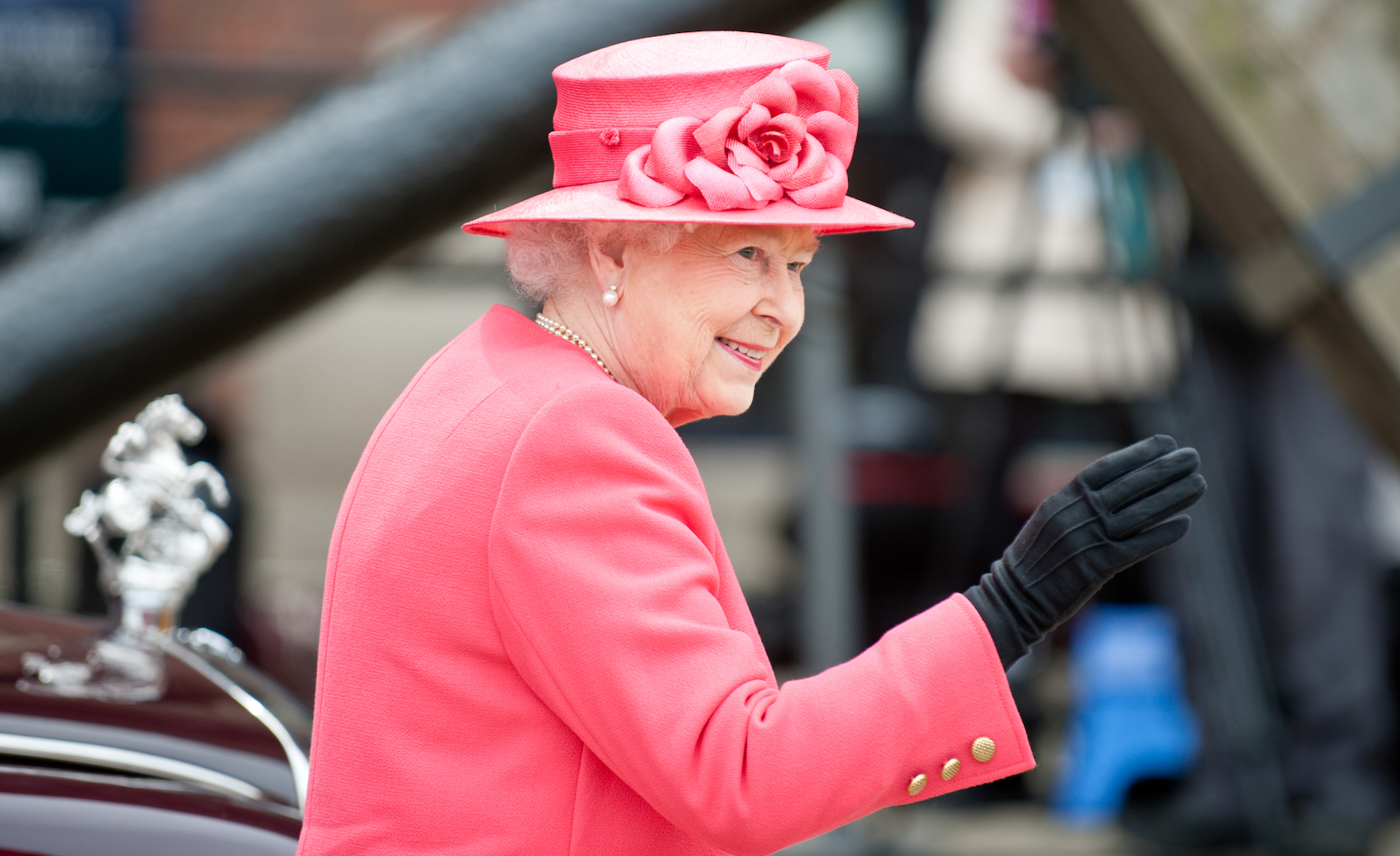
Pictured: "No King or Queen of England since 1260 has been titled 'Duke of Normandy.'"
16. In conclusion, it is worth noting that a statement in the legislature in 2018 about the constitutional position of the office of Bailiff [see the States Assembly’s public record at WQ 188/2018], the then Attorney-General, in surveying the historical origins of the said office, noted very carefully that while Jersey was originally a bailliage within Normandy, headed by un bailli, it was now a bailliage [‘bailiwick’] under the English Crown in place of the Duchy of Normandy. That is and remains correct history, suitably on the record in the proceedings of the legislature. The Duchy of Normandy vanished 763 years ago as a legal entity, its mainland territories having been incorporated into the kingdom of France and the Channel Islands having become territories of the English Crown a further half century before that.
17. This is a very brief resume of a few key aspects of a complex picture. Anglo-French politics and diplomacy in the mid-13th century is bewilderingly complex but our understanding is helped by some excellent chronicle and archival sources in both lands through which the narrative of the time can be built. The three books cited below, each the work of a great scholar, rest firmly upon those many original sources and the work of many others over the last hundred years or so to unravel them."
Comments
Comments on this story express the views of the commentator only, not Bailiwick Publishing. We are unable to guarantee the accuracy of any of those comments.